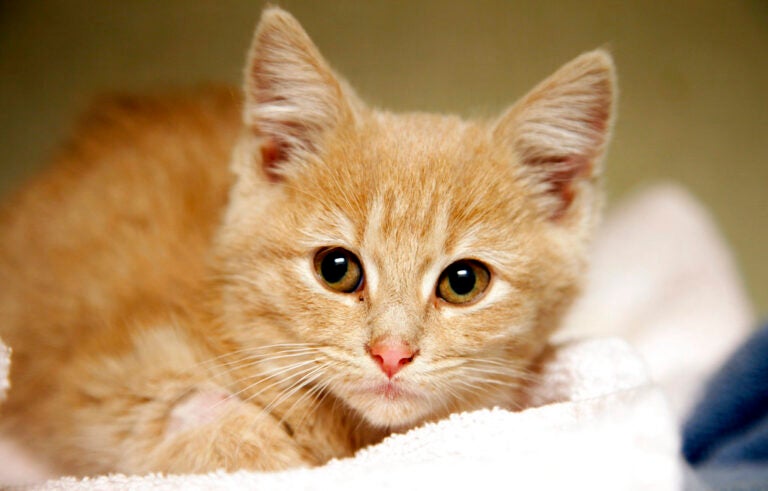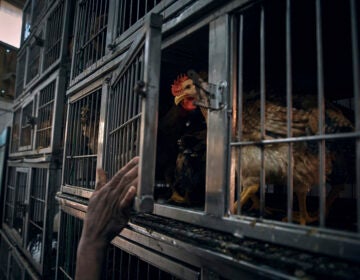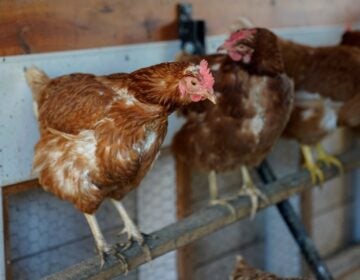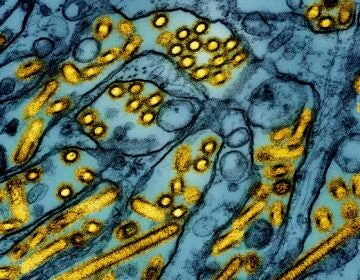Are cats at risk of bird flu? What pet owners can do to protect their cats
Veterinary expert Dr. Stephen Cole discusses the risks of bird flu in cats and how pet owners can prevent exposure.

In a Friday, Nov. 14, 2014 file photo, Elsa, a kitten, recovers at the Denver Dumb Friends League animal shelter, in Denver. (AP Photo/P. Solomon Banda)
From Philly and the Pa. suburbs to South Jersey and Delaware, what would you like WHYY News to cover? Let us know!
While avian flu, commonly known as bird flu, continues to spread among animals in our region, some cat owners are worried their pets are at risk of the viral disease.
Dr. Stephen Cole, director of the Clinical Infectious Disease Laboratory at the Veterinary Hospital at the University of Pennsylvania, says that while the number of documented reports of cats with avian flu have been low so far, the disease is “fairly fatal for cats, so certainly it is a big risk if they contract it.”
Respiratory signs like sneezing, coughing and a runny nose are some symptoms you may see in a cat with avian flu. Cole has also found some cats present with “unique neurological symptoms, such as tremors, not being able to walk correctly and abnormal neurologic responses to stimulus.”
Cole explained that cats can be exposed to avian flu through contact with infected birds or backyard poultry. He says another way cats can potentially be exposed is through eating raw pet foods that have been contaminated with the virus.
While there have been a number of reports of feral cats who have contracted avian flu, he said their role in potentially giving avian flu to humans or other animals is unclear.
“To what extent they’re actually spreading it versus just sort of falling victim to it is a little bit of a question mark for us still right now,” Cole said.
He added that the best way to protect cats against avian flu is to keep them inside and away from possible exposures through birds and other animals. Also, avoiding raw pet food could be another way to avoid potential infection.
He said that if cat owners follow this advice, they won’t have much to worry about.
“The risk is certainly low for cats without exposures like raw diets and contact with birds,” he explained. “It is a legitimate concern though if your cat does have these exposures, and pet owners should think about making changes to avoid these risks.”

Get daily updates from WHYY News!
WHYY is your source for fact-based, in-depth journalism and information. As a nonprofit organization, we rely on financial support from readers like you. Please give today.





